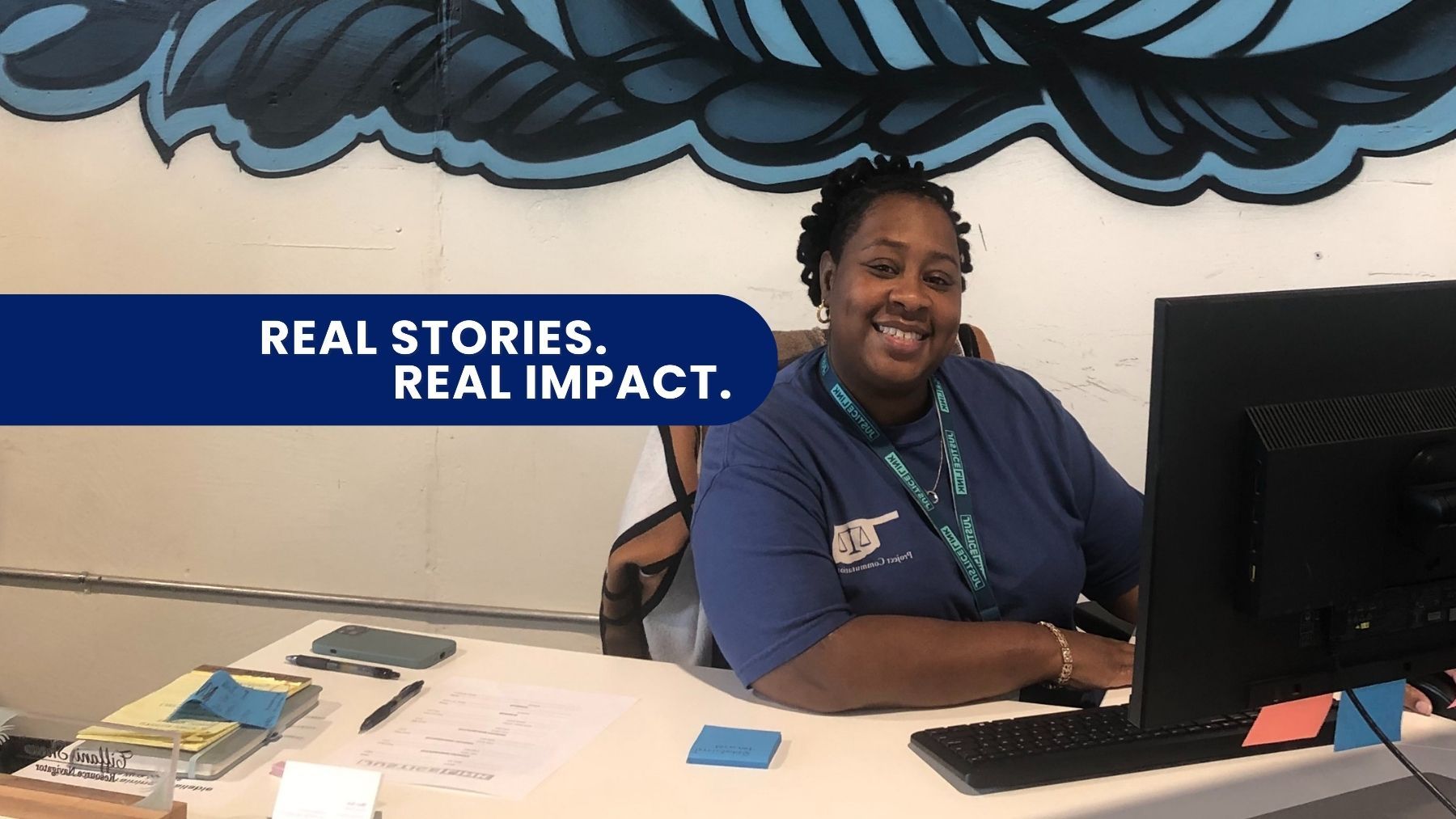
“I didn’t become sober just for me. I became sober to help others.” That is the philosophy Tiffani Shaw brings to her job each and every day at JusticeLink in Tulsa, Oklahoma. Her mission is to help others caught up in the criminal justice system – and CHESS Health makes her job easier.
Shaw is a resource navigator with JusticeLink, which operates as a one-stop shop that provides assistance to individuals either facing incarceration or putting their lives back together after their release from prison.
She brings passion and personal experience to the job. After serving a felony sentence herself, Shaw emerged from incarceration in 2023 and quickly experienced the reality of living with a record. For Shaw, finding employment and housing were some of the significant hurdles she faced to get her life back on track, and she faced them all on her own.
“When I was going through my trouble, there was nothing like JusticeLink,” she recalls. “There was no way that I could get help, other than calling 211 and that was often very frustrating.” Alongside the cultural stigma associated with being labeled a felon, she was left to navigate the criminal justice system on her own, which meant endless, often frustrating, attempts to find the right person to talk to and then waiting for their response. “To go and speak with someone face to face would have been a lot easier. But I went through what I went through so that I could identify with others who are going through it as well.”
Gaining Peace of Mind with eIntervention
As a resource navigator, she maintains a working list of up to 80 clients at a time. Clients can have all different needs, as each is in their own point of the system. Some are facing a pre-trial hearing, others in need of substance use counseling, and others a place to live. All have goals they are working towards. And, because she uses CHESS Health’s eIntervention solution, Shaw can immediately find out how each client is progressing.
“CHESS Health is wonderful,” she says. The broad array of community partners all looped into eIntervention’s referral network allows her to establish meaningful connections for her clients and to monitor their progression. Once she makes a referral, the system takes over. “I know that the referral will get to the right person and that somebody is going to check in with that client. I don’t have to continually call the provider to check in, I can just safely know that once I send in the referral, it’s going to be taken care of. For me and my own mental health, for my stress levels, it helps a lot.”
And she knows firsthand the impact that assurance can have on her clients as well. “It’s very important for them,” she says. “Just knowing that somebody is trying to help them makes them feel better.”
Looking To The Future
With new clients coming in the door every day, there is much work to be done, and Shaw’s passion is leading her on a new journey of advocacy, trying to better conditions for people in incarceration, working to better their lives. “I’ve seen it face on,” she says. “Especially with people that are trying to reenter society, coming back from incarceration and dealing with mental health issues. I think those are two big barriers. I want to fix that.” To that end, she recently journeyed to Washington D.C. to appear before a Senate briefing where she shared her story and advocated for changes to the criminal justice system.
It’s her passion, and it’s also her joy. “I have a client and I’m just so happy for her, because I saw (her journey) from beginning to end and it was so beautiful. It was just like looking at a flower blooming.”
